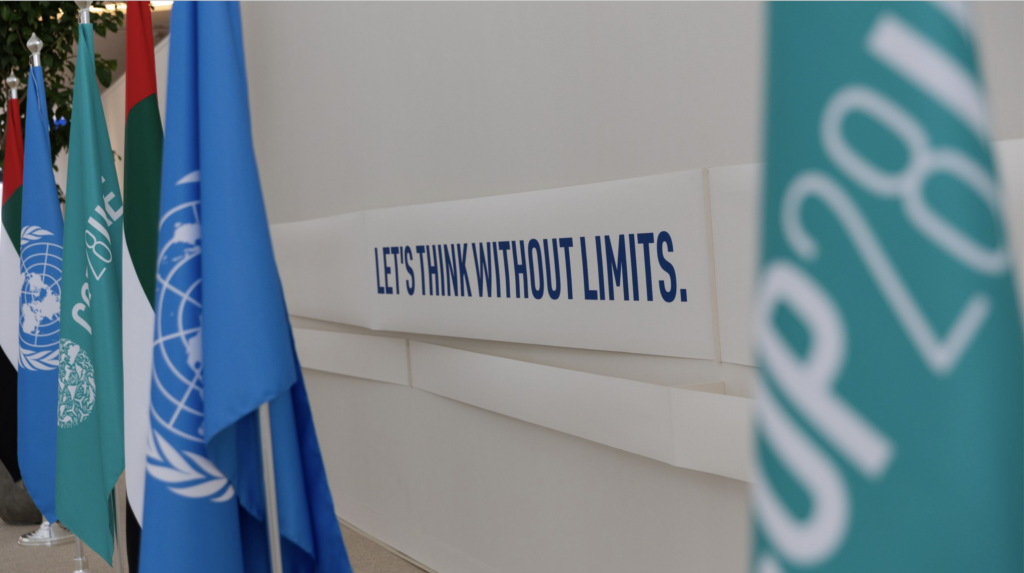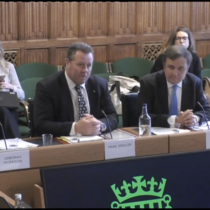If you’re not at COP to tell your story, others will do it for you
Following the lengthy and somewhat challenging application process (which can take up to a year to complete) I had the privilege of attending COP28 in Dubai in December 2023 as an official observer representing the British Meat Processors Association and our members.
For those unaware of this two week event it is the United Nations annual climate change conference attended by government negotiators from nearly 200 countries. In total over 100,000 delegates are present from Media, NGO’s, Charities, Businesses and Industry.
Although historically focused on Energy emissions from Oil, Gas and Coal which make up the majority of global greenhouse gas emissions, at COP28, for the first time there were two days dedicated to Nature, Land Use and Oceans and Food, Agriculture and Water.
There were pavilions focusing on Food and Agriculture, Food Systems, and a Food4Climate Pavilion advocating a shift toward plant rich diets. Clearly there were significant diverging views on the role of agriculture, livestock and animal products as a contributor and solution to global warming while simultaneously providing 8 billion humans with a balanced and healthy diet.
The debates for and against a multitude of views on the possible solutions that agriculture can deliver were well represented with what seemed to be a significant focus on regenerative agricultural systems and the importance of soil health as contributors to the 2050 global agriculture carbon sink target.
This increased interest in food and agriculture is perhaps long overdue but it comes with some serious implications and a responsibility to contribute to our sector’s Net Zero objectives both locally and globally. An early commitment to this end as part of the high-level negotiations is the UAE Declaration on Sustainable Agriculture, Resilient Food Systems and Climate Action1. It was signed by almost 160 countries including the UK with collaboration to maximize the climate and environmental benefits from agriculture and food systems and a commitment to integrate these into national climate plans, with a review of progress in 2025.
It was encouraging that the Food and Agriculture Organisation of the United Nations (FAO) published two agricultural sustainability reports during the COP fortnight both acknowledging that livestock are a critical factor in food systems transformation.
The first – Pathways towards lower emissions, A global assessment of the greenhouse gas emissions and mitigation options from livestock agrifood systems2 acknowledges the important contribution livestock makes to essential nutrition and livelihoods. It highlights that livestock efficiency is multi-faceted, and livestock’s contribution has regional variances and is not a one size fits all solution.
The second – Achieving SDG 2 without breaching the 1.5 °C threshold: A global roadmap3 sets out a three-year commitment toward agrifood systems transformation with a section specific to livestock mitigation and links to other FAO reports. This roadmap begins at COP28 and culminates at COP30 which will be held in Brazil in 2025.
It could be argued that due to the interests of COP28’s host nation in the global energy industry, and the media attention this attracted that Agriculture, Farming, Livestock and Food Systems ducked under the radar this time. Following a commitment in the closing session at COP28 to “transition away from fossil fuels and towards renewables and energy efficiency” and with this commitment being hailed as a “signal that the fossil fuel era is coming to an end” it is only a matter of time before attention is moved toward food systems, livestock and agriculture.
The 2024 COP event is to be held in Baku in Azerbaijan, another host nation with fossil fuel interests so it’s likely that our sector will again be spared any significant attention. I anticipate that COP30, hosted by Brazil, will be when our sector is placed under close scrutiny. In the meantime there is an ongoing and urgent need for precompetitive collaboration to deliver the net zero food systems goals needed to maintain and grow our sector within the UN’s Sustainable Development Goals.
1 COP28 UAE Declaration on Sustainable Agriculture-Resilient-Food-Systems-and-Climate-Action (1).pdf
2 Pathways towards lower emissions (fao.org)
Press Release New FAO report maps pathways towards lower livestock emissions







